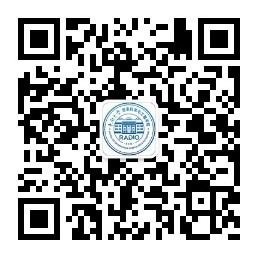研究生课程开设申请表
院(系、所): 信息科学与工程学院课程申请开设类型: 新开√□ 重开□ 更名□
课程 名称 | 中文 | 数字通信系统分析 | |||||||||
英文 | Analysis of Digital Communication Systems | ||||||||||
待分配课程编号 | MS004226 | 课程适用学位级别 | 博士 | 硕士 | √ | ||||||
总学时 | 32 | 学分 | 2 | 实践环节 | 用机小时 | ||||||
课程类别 | 公共基础 | 专业基础 | 专业必修 | 专业选修 | √ | ||||||
开课院(系) | 信息科学与工程学院 | 开课学期 | 秋 | 考试方式 | 大作业 | ||||||
课程负责人 | 教师 姓名 | 李春国 | 职称 | 教授/博导 | |||||||
chunguoli@seu.edu.cn | 网页地址 | ||||||||||
授课语言 | 中文 | 课件地址 | |||||||||
适用学科范围 | 通信与信息系统 | 所属一级学科名称 | 通信与信息系统 | ||||||||
实验(案例)个数 | 先修课程 | 傅里叶变换理论、随机过程理论、数字信号处理理论 | |||||||||
教学用书 | 教材名称 | 教材编者 | 出版社 | 出版年月 | 版次 | ||||||
主要教材 | 自编讲义 | ||||||||||
主要参考书 | Introduction to space-time wireless communications | A. Paulraj, R. Nabar and D. Gore | Cambridge University Press | 2003 | 1 | ||||||
一、教学目标和要求:
数字通信系统分析的方法与技术主要包括数字通信的系统运行知识、聚焦点是关于调制和无线传输质量,涉及到随机过程、基带信息传输、以及现代的宽带调制技术。目标是使学生掌握这些技术的原理和分析方法,并能够完成相应的定量的性能分析与计算。
二、教学大纲(含章节目录):
第一章:无线数字通信系统概述(2学时)
综述无线数字通信系统的研究背景与现状。
第二章:OFDM调制技术(6学时)
包括OFDM的正交特性、工作特性、研究热点。
第三章:MIMO调制技术(6学时)
空间调制技术的原理、设计方法、关键技术问题。
第四章: 空间多用户调制技术(6学时)
空间多用户调制技术的研究进展、设计方法、干扰解决理论。
第五章: 无线数字通信系统的服务质量概述(6学时)
频谱效率、能量效率、链路可靠性、用户体验质量、用户公平性、负载公平性等。
第六章: 无线数字通信系统的干扰管理与资源调配(6学时)
收发机的设计、小区间干扰解决方法。
第七章:无线数字通信系统的性能理论分析方法(4学时)
中断概率、误码率、信道容量的理论分析方法。
三、教学周历:
周次 | 教学内容 | 教学方式 |
1 | 无线数字通信系统概述 | 教授/讨论 |
2 | OFDM调制技术1 | ; |
3 | OFDM调制技术2 | ; |
4 | MIMO调制技术1 | ; |
5 | MIMO调制技术2 | ; |
6 | 空间多用户调制技术1 | ; |
7 | 空间多用户调制技术2 | ; |
8 | 无线数字通信系统的服务质量概述1 | ; |
9 | 无线数字通信系统的服务质量概述2 | ; |
10 | 无线数字通信系统的干扰管理与资源调配1 | ; |
11 | 无线数字通信系统的干扰管理与资源调配2 | ; |
12 | 无线数字通信系统的性能理论分析方法1 | ; |
13 | 无线数字通信系统的性能理论分析方法2 | |
14 | ||
15 | ||
16 | ||
17 | ||
18 |
填表说明:1.以上一、二、三项内容将作为中文教学大纲,在研究生院中文网页上公布,四、五内容将保存在研究生院。2.开课学期为:春季、秋季或春秋季。3.授课语言为:汉语、英语或双语教学。4.适用学科范围为:公共,一级,二级,三级。5.实践环节为:实验、调研、研究报告等。6.教学方式为:讲课、讨论、实验。7.课件地址指在网络上已经有的课程课件地址。8.主讲教师简介主要为基本信息(出生年月、性别等)、研究方向、教学与科研成果,以100至500字为宜。
四、主讲教师简介:
李春国:东南大学教授、博士导师。
五、任课教师信息(包括主讲教师):
任课 教师 | 学科 (专业) | 办公 电话 | 住宅 电话 | 手机 | 电子邮件 | 通讯地址 | 邮政 编码 |
李春国 | 信号与信息处理 |
| chunguoli@seu.edu.cn | 南京东南 大学四系 | 210096 | ||
六、课程开设审批意见
院(系、所)学位评定分委员会审核意见: 负责人签字: 日期:200年 月 日 |
院(系、所)负责人意见: 负责人签字: 日期:200年 月 日 |
研究生院培养办审批意见(包括课程申请者已开研究生课程及同一学期开设研究生课程门数、全校同类课程情况等) 负责人签字: 日期:200年 月 日 |
研究生院审批意见: 负责人签字: 日期:200年 月 日 |
说明: 1.研究生课程重开、更名申请也采用此表。表格下载:http:/seugs.seu.edu.cn/down/1.asp
2.此表一式三份,交研究生院、院(系)和自留各一份,同时提交电子文档交研究生院。
3.没有学位评定分委员会机构的院(系、所),可以由院(系、所)学术分委员会审核。
Graduate Course Syllabus
Course Serial Number: School(or Department):School of Information Science and Engineering
Course Title | in Chinese | 数字通信系统分析 | |||||||||||
in English | Analysis of Digital Communication Systems | ||||||||||||
Course Number | MS004226 | Type of Degree Suitable | Master | ||||||||||
Total Hours | 32 | Class Hours | 36 | Credit | 2 | ||||||||
Practice or Experiments | Computer-using Hours | ||||||||||||
Department | School of Information Science and Engineering | Semester | Autumn | Form of Exam | Course Projects | ||||||||
Chief Lecturer | Name | Chunguo Li | Professional Title | Full Professor, Ph.D Sdutents Advisor | |||||||||
chunguoli@seu.edu.cn | Personal Website | ||||||||||||
Course Language | Chinese | Teaching Material Website | |||||||||||
Class of Discipline | Signal and Signal Processing | Title of Discipline | Communications and Information Systems | ||||||||||
Number of Experiments | Preliminary Courses | ||||||||||||
Teaching Reference Books | Book Title | Author | Publishing House | Year of Publication | Edition Number | ||||||||
Main Textbook | |||||||||||||
Main Reference Books | |||||||||||||
I. Teaching Goals and Requirements:
The goal of this course is to enable the student shall have a working knowledge of digital communication systems, with focus on the modulation techniques and the quality of transmission. This covers a range of topics starting with random processes, going to baseband transmission and leading to modern wideband modulation techniques. The student shall have insight in the techniques (understand) and be able to quantify their properties (calculate)
II. Teaching Syllabus (chapters, including sections)
Chap 1. Introduction to Wireless Digital Communications Systems
Review both transmitter and reliever in wireless digital communications sytems;
Chap 2. Orthogonal frequency division multiplexing (OFDM)
Orthogonal properties, working principles, and related research hot topics over OFDM;
Chap 3. Multi-input multi-output (MIMO)
Spatial modulation principles, design methods, key problems therein;
Chap 4. Multi-user MIMO modulation
Research progressing over multi-user MIMO digital communications, design techniques, and interference solving theories;
Chap 5. Introduction to quality of service over wireless digital communications systems
Spectral efficiency, energy efficiency, link reliability, quality of experiences, user fairness, offloading fairness;
Chap 6. Interference management and resource allocation over wireless digital communications systems
Transmitter and receiver joint design, inter-cell interference solving methods;
Chap 7. Theoretical analysis of performances over wireless digital communications systems
Theoretical analysis over outage probability, symbol error rate, capacity.
III. Teaching Calendar:
Week | Course Contents | Teaching Method |
1 | Introduction toWireless Digital Communications Systems | Teaching and discussion |
2 | Orthogonal frequency division multiplexing (OFDM)1 | ; |
3 | Orthogonal frequency division multiplexing (OFDM)2 | ; |
4 | Multi-input multi-output (MIMO)1 | ; |
5 | Multi-input multi-output (MIMO)2 | ; |
6 | Multi-user MIMO modulation1 | ; |
7 | Multi-user MIMO modulation2 | ; |
8 | Introduction to quality of service over wireless digital communications systems1 | ; |
9 | Introduction to quality of service over wireless digital communications systems2 | ; |
10 | Interference management and resource allocation over wireless digital communications systems1 | ; |
11 | Interference management and resource allocation over wireless digital communications systems2 | ; |
12 | Theoretical analysis of performances over wireless digital communications systems1 | ; |
13 | Theoretical analysis of performances over wireless digital communications systems2 | |
14 | ||
15 | ||
16 | ||
17 | ||
18 |
Note:The teaching calendar is not compulsory temporarily for speciality courses for doctor degree.
IV. Resume of the Chief Lecturer:
Chunguo Li, Professor in School of Information Science and Engineering, Southeast University.
注2:新开课程请填写以上英文教学大纲,该内容将在英文网页上刊登。

